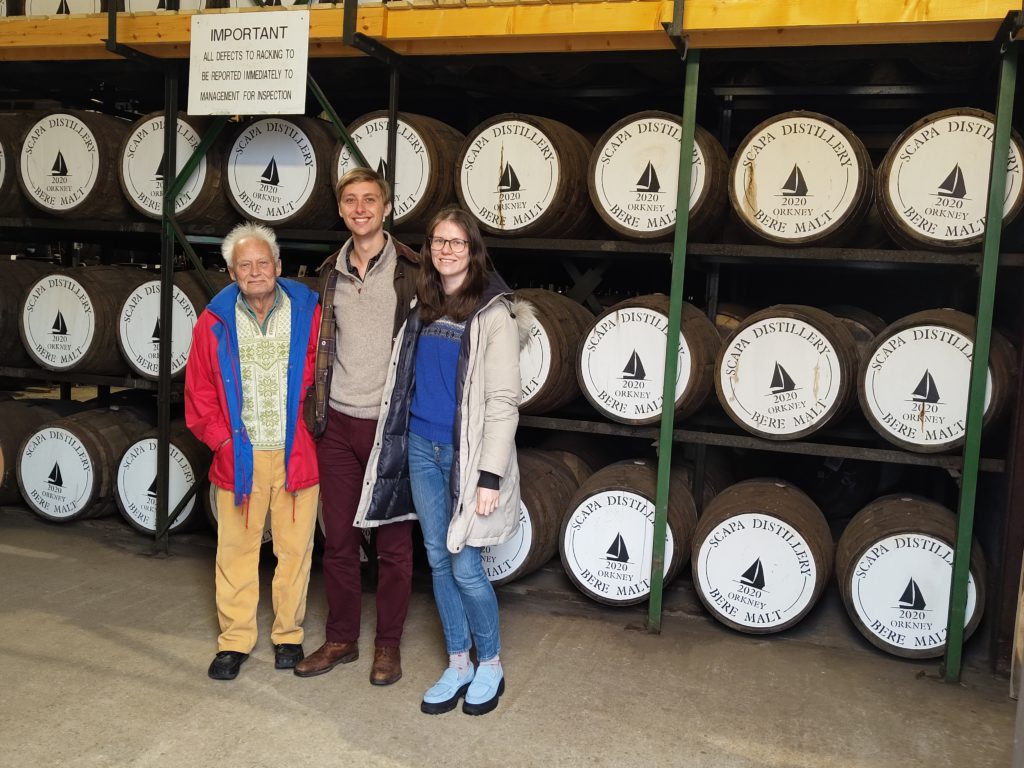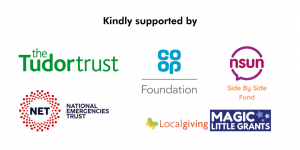Heather Storgaard reflects on this often-overlooked grief, in the wake of the loss of her husband’s parents.
The loss of in-laws is an odd topic to write about. I’ve attempted it multiple times, but mostly focused on my husband’s loss. It’s taken time for me to accept that, although not my parents or blood family, I have also lost people important to me. Nightmare relations with in-laws are very well represented in films, particularly in cross cultural relationships.
My in-laws
My husband comes from Denmark and although it only lies across the North Sea, Scotland felt a long way away sometimes. Now, while Danish friends visit family for long, bright summers, that link to another culture has been lost for us.
My husband is an only child, born late to parents who were each around a decade younger than their nearest siblings. Many of his cousins are older than my parents, and many of their children older than us. All this combined to create a setting where I was far more involved with his parents than most partners typically are. His mum, Jane, got early onset dementia, and lived in a home, so for a long time it had been just him and his dad. I met Jane twice before she died, feeling a strange jolt the first time my husband said, “my parents are outside”.
The chaos begins
My mother-in-law died on 18th February, my husband’s birthday is the 19th , and my father-in-law died on the 20th . There’s something about that week in the Halkjær-Storgaard family. The four years between their deaths were chaotic, with grief, Brexit and Covid creating a terrible cocktail. My father-in-law began to feel ill around the time his wife died, but put everything down to grief and stress: it was in fact advanced bowel cancer. From then on, it felt like we were battling against the Danish state from every angle.
My husband lost access to student finance because he got delayed at university, with the reasoning given that losing your mum at 21 was “part of the general course of life” (for context, unexpected overtime at work is a listed acceptable excuse). There was also no way we could move to be with his dad: non-EU spouses of Danes are subject to the 24 Years Rule, better known as the Child Bride rule, so even applying for a family reunification visa was impossible. Seemingly, young Danes are not allowed dead parents or caring responsibilities.
During all of this, my father-in-law believed in me and my dreams and ambitions in the most supportive way I have ever experienced. In many ways, he understood me better than my own parents did (this isn’t to say he’s a saint- we would also row terribly!). He was the reason I learnt Danish so well and so quickly, with a clearly Jutlandic accent and the ability to discuss anything from medical issues to philosophy with confidence. We could sit up until the early hours of the morning, nursing glasses of red wine while talking about German literature or Scandinavian languages (to my husband’s great annoyance). Whenever he encountered a challenge or a problem, he would say that he should write about it, and I react very much the same way, as you can read!

Now that he is gone, random moments or incidents make me realise that despite not living in the same country, our day to day lives were nevertheless entwined. Back home in Edinburgh after his death, I felt like our living room was messy confusingly fast. One evening, my husband made a phone call, and I realised I had been tidying up while he phoned his dad in an evening, without consciously thinking about it. I keep thinking now that I can’t wait to send him this blog post.
In many ways, we are also now morning my mother-in-law for the first time. Going through the farm felt a bit like a museum, as nothing had been changed. We found long-lost possessions and all sorts of new information about her life. We knew she came from a family of Francophiles but didn’t know she’d been accepted to study the language at various universities in France. My husband looks just like her, and photos of her fooling around with friends on holiday in the 1970s could easily have been mixed in with the carefree, black and white shots an arty university friend from Copenhagen took of our small circle of friends four decades later.
The grieving process
Now there is little to do other than try to make space for the grieving process. We still regularly get asked if we won’t move to Denmark, which frustrates me. I tell people how harsh the immigration system is, rather than that there is nothing or no-one there for us to go back to.
We are looking to buy a house in Scotland and make real roots, but loss manages to sneak its way in to even these positive steps. At our last viewing, the seller blocked the doorway and made me confirm who we were, in a baffling and uncomfortable interaction. It turned out she knew the prospective buyer had inherited a property and sold it, so had imagined a much older couple.
The reminders of loss and grief appear at random, often like this, when we’re least expecting them. I’m reminded that the situation is unfathomable to many, and this makes socialising or even just communicating outside of our own circle of close friends and colleagues tiring and stressful. I’m extremely grateful for groups like Lets Talk About Loss, as well as friends who can relate, although I’m also incredibly sad that three of our close friends have also lost parents or parents-in-law by their mid 20s.
Heather Storgaard
If you would like to share your story for our blog, please email blog@letstalkaboutloss.org.

